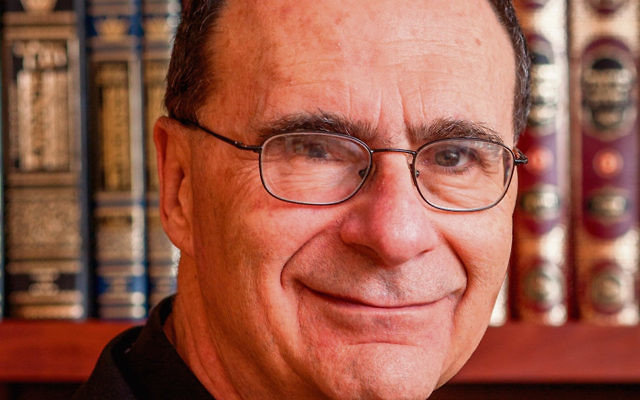Hoffman to play key role at UPJ conference
Rabbi Dr Lawrence Hoffman will be the scholar-in-residence at the Union for Progressive Judaism (UPJ) biennial conference in Melbourne this month.
WHEN rabbis go where their future congregants are sipping lattes or beers, they can actually encourage young Jews to identify, according to US-based Rabbi Dr Lawrence Hoffman.
Rabbi Hoffman, who will be the scholar-in-residence at the Union for Progressive Judaism (UPJ) biennial conference in Melbourne this month, is one of the creative minds behind Synagogue 3000, which shows shules how to attract and keep congregants.
Speaking to The AJN from New York, the Reform rabbi said Jews have traditionally seen synagogues as places to meet “based on ethnicity, shared Holocaust experiences and what I’d call Jewish civic virtue, that feeling that it’s the right thing to join a shule. But millennials don’t need a physical centre because the internet empowers them.”
To attract these young adults, he said “we need to be online in ways we’re only beginning to learn how to do”.
Rabbi Hoffman teaches liturgy, ritual, spirituality, theology and synagogue leadership at the Hebrew Union College-Jewish Institute of Religion in New York.
His interest in Jewish identity and its hunger “for learning, for reason, for truth” sprang from his love of liturgy and how it adapts to reflect a developing Jewish identity.
He has written or edited over 40 books, including My People’s Prayer Book, an award-winning 10-volume siddur with modern commentaries.
He sees siddurs as “a script for the sacred drama of the Jewish people”, and is keen to see the UPJ’s new Mishkan T’Shuvah machzor.
“I began to see different prayer books as different indices of evolving Jewish identity,” he said, noting Progressive siddurs began “not because we don’t like the traditional siddur, but because it no longer reflected our identity”.
Canadian-born Rabbi Hoffman grew up at an Orthodox synagogue on the fringe of Toronto but was attracted to Reform’s embrace of what he calls “the responsibility of the individual conscience”.
“I’d like to redefine Judaism as a rolling conversation through time,” he reflected, “but also about that which does justice to the human condition.”
The theme of the UPJ conference, to be held November 15-18, is Making Progressive. For more info, visit www.upj.org.au.
PETER KOHN


comments